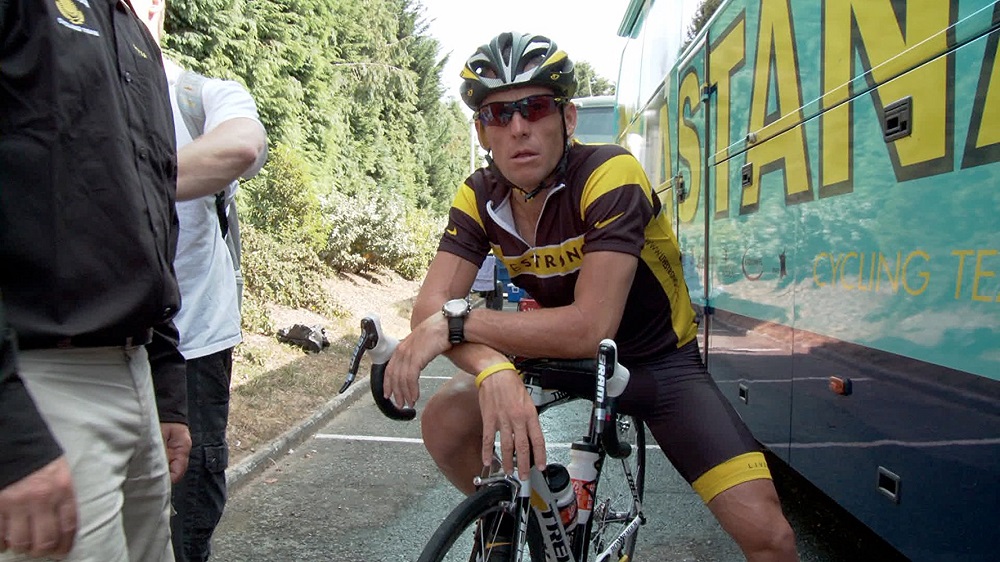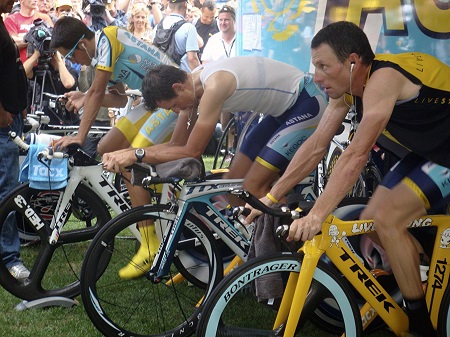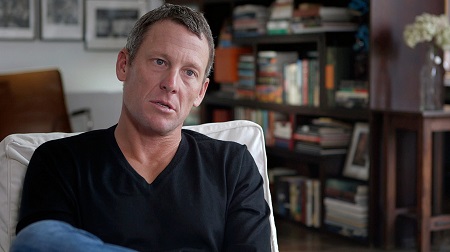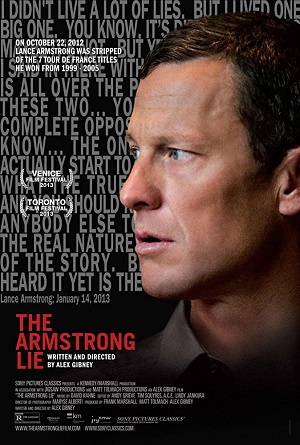
Truth and Fiction Compete in The Armstrong Lie
It was 2008. Academy Award-winning Documentarian Alex Gibney (Taxi to the Darkside) was in the process of throwing together the final touches on a new project, the filmmaker set to do an in-depth chronicle of Lance Armstrong’s comeback attempt at the 2009 Tour de France. He was allowed access to the athlete like no one else before him, and while he was admittedly in awe of the superlative cyclist he still felt he could do a fair and honest portrait that asked the tough questions. He’d show Armstrong for who he was, warts and all, getting to the bottom of accusations of performance enhancing drug use and find out whether they were true or false.
Well, that certainly didn’t happen. While in the midst of post-production everything changed, Armstrong finally revealing in a one-on-one interview with Oprah Winfrey at the start of 2013 that he had in fact used performance enhancing substances in all seven of his Tour de France victories. This was after a year where the bottom fell out of the lie he’d been living for over a decade, the athlete facing countless lawsuits and investigations all of which ground his life to a halt and made continuing to be the face of the LiveStrong Foundation untenable.
That’s the crux of Gibney’s The Armstrong Lie. A weaving of footage and material he shot of Armstrong’s comeback as well as interviews he conducted earlier this year, the movie attempts to dig deeper into this subterfuge and what it was that led the athlete to believe he could get away with breaking the rules in the first place. The two hour film flies by and is always engaging, the director painting an involving picture of subterfuge, innuendo, backstabbing and outright lies that is consistently fascinating.
But does it tell us anything new? Do we get any additional insights that haven’t been examined ad nausea on sports cable networks like ESPN? Most importantly, do we believe Armstrong when he attempts to tell us he has nothing additional to hide, that the reasons for all of this was to maintain a level competitive playing field with those he was riding against? Do these interviews with the likes of Betsy and Frankie Andreu, George Hincapie, David Walsh, Johan Bruyneel, Michele Ferrari and Jonathan Vaughters bring any additional insights?
No. Not really. But in all fairness I’m not sure that is the point. Gibney isn’t so much shedding light as making it this glare shine a bit brighter upon its target, keeping Armstrong at the center of the ring as if he is still the mind behind the circus he was the ringmaster of for a very, very long time. It’s brutally effective, the juxtaposition of the cyclist’s 2009 comeback attempt with his squirms sitting with Gibney in 2013 more than a little bit startling.
Yet I’m still not positive The Armstrong Lie is a piece of documentary cinema that requires being seen in theatre. It doesn’t offer up a ton we don’t already know, and I can’t say every current word coming out of its subject’s mouth is 100-percent believable. It’s a nice film, at times even a fascinating one, it’s just not essential, and that’s as strong a truth as any to be found in any single one of this picture’s 124 investigative and observational minutes.








